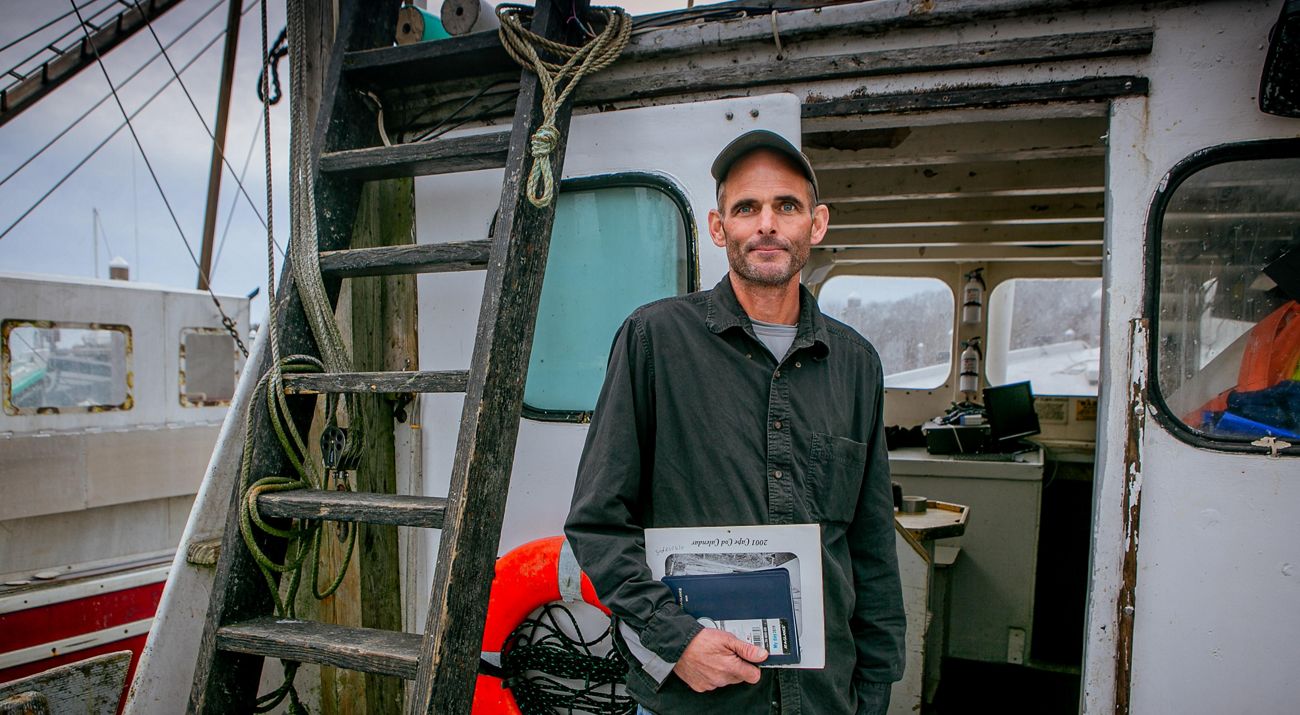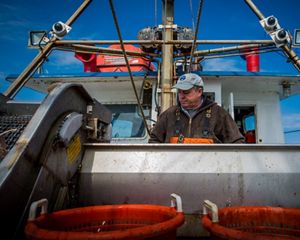
A Fisherman on the Front Lines of Climate Change
In his two decades fishing off Cape Cod, Kurt Martin has witnessed shifts in climate and fish availability.
Chatham-based commercial lobsterman and fisherman Kurt Martin has been keeping logbooks while out fishing for more than two decades—tracking catch amounts, species abundance, weather conditions, water temperatures and more. It’s quite apparent to him that things are changing in our oceans—and rapidly. Water temperatures are higher, foggy days off Chatham are less common and the types of fish available are different.
“In 1992 and 1993, we would maybe see two days all summer long when the water temperature would jump above 60 degrees,” says Martin. “Now, almost 30 years later, we rarely see a day below 60 degrees in the summertime, and we even see days in the low 70s.”
Adapting to Cape Cod’s Changing Conditions
Martin got into the business in the early 90s and has been fishing a variety of species in the near-shore waters of Cape Cod ever since. Over the years, his community has grappled with shifts in fish populations in response to warming waters, likely a result of climate change. In Massachusetts, especially off Cape Cod’s shores, the biggest change has been in the population of the Cape’s namesake, Atlantic cod.
“There are no cod off Cape Cod anymore,” says Chris McGuire, The Nature Conservancy in Massachusetts’ marine program director, articulating a sentiment echoed by Martin and the fishing community. “But fishermen have learned to adapt to that. And so now they’re fishing for other species that are becoming more common in our waters as they move north, or focusing on species that were not previously fished.”




Martin is one of many fishermen on the Cape who has learned to adapt to the changing times by going after whichever species are most abundant at a given time. Adaptability is key if he and his peers are going to maintain their livelihoods.
“It's an ever-changing business, and it's become really hard to change as fast as things are changing climate wise,” says Martin. “There used to be truckloads of codfish leaving Chatham every day. Now the truckloads are of dogfish and skate. Most of our codfish now comes from further north. It’s all imported.”
Adapting Fisheries Management for Changing Times
When one fish population dips, it is not uncommon for a boat to switch to a different species. But fishermen face a range of challenges in trying to do so, including permitting regulations, the cost of re-rigging a boat for catching a different species, and uncertainty about what future years may hold. This is why it is critical for fishery management agencies and researchers to keep up with the changing environment and evolve fisheries management strategy accordingly.
And this is also where TNC plays a unique role, working alongside fishermen, resource managers and policymakers to sustainably meet the growing need to feed the world. Through research on fish populations and the implementation of innovative technology to gather better information about catch totals, TNC and the fishing community can help guide best practices and regulations for the industry.
Consumers can also help in their response—both McGuire and Martin recommend eating local fish and adapting tastes to the species local fishermen are catching. Says McGuire: “Consumers should be open to exploring options other than than tuna, shrimp and cod. The fishing community is seeing healthy populations of other species, like black sea bass for example. As consumers, we need to find a way to enjoy those as well.”


